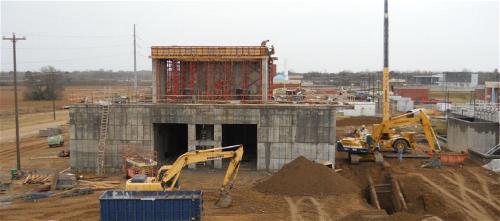Columbia, SC – September 3, 2013
On September 3, 2013, City of Columbia Council approved an ordinance authorizing the execution of a proposed consent decree with the United States Environmental Protection Agency (EPA), the United States Department of Justice (DOJ), and the South Carolina Department of Health and Environmental Control (SCDHEC). The proposed consent decree resolves the agencies’ claims against the City for alleged violations of the federal Clean Water Act and the South Carolina Pollution Control Act in connection with the City’s operation of its wastewater collection and treatment system. These allegations were first asserted by EPA in a notice of violation issued to the City on April 14, 2009. One of the primary issues raised by the agencies was the occurrence of sanitary sewer overflows in the City’s wastewater collection system. Notwithstanding these allegations, the City has been proactive in the management of its wastewater collection and treatment system, investing over $159 million in capital improvements since 2008.
Since June 2010, the City has been in negotiations with EPA, DOJ, and DHEC to resolve the issues raised in the notice of violation. The proposed consent decree includes a civil penalty and requires the City to undertake a comprehensive evaluation of its wastewater system and make improvements and upgrades to the system infrastructure to address deficiencies identified in the evaluation. The proposed consent decree also includes a Supplemental Environmental Project (SEP) for stream cleanup and water quality improvement projects on three stream segments of Rocky Branch, Smith Branch, and Gills Creek. The City will coordinate with the Rocky Branch Watershed Alliance, the Congaree Riverkeeper, and the Gills Creek Watershed Association in developing and implementing these projects.
The wastewater system improvements and SEP undertaken under the proposed consent decree are integral to the City’s Clean Water 2020 Program. The City of  Columbia maintains over 1,100 miles of wastewater collection system and operates a wastewater treatment plant permitted for an average daily flow of 60 million gallons per day. Clean Water 2020 incorporates a comprehensive approach to infrastructure and business process improvements to the City’s wastewater treatment and collection system. The ultimate goal of the Program is to reduce sanitary sewer overflows from the City's wastewater system. The City has already made significant system investments to meet this goal, including:
Columbia maintains over 1,100 miles of wastewater collection system and operates a wastewater treatment plant permitted for an average daily flow of 60 million gallons per day. Clean Water 2020 incorporates a comprehensive approach to infrastructure and business process improvements to the City’s wastewater treatment and collection system. The ultimate goal of the Program is to reduce sanitary sewer overflows from the City's wastewater system. The City has already made significant system investments to meet this goal, including:
-
A recently completed $40 Million investment in the Metro wastewater treatment plant designed to increase system capacity and allow the plant to better manage the inflow of wastewater following heavy rains;
-
Initiating the development of a state-of-the-art hydraulic modeling program to allow the City to determine where the system will need to grow to meet long-term customer needs; and
-
Implementing a fats, oils and grease inspection program which led to a 39.4% reduction in grease-related sanitary sewer overflows between fiscal year 2008 and fiscal year 2011.
The City has also established a public outreach program to increase awareness of the need to reduce the release of fats, oils, and grease from residences into the City’s sewer system.
Important Links
Update April 2014: Final Consent Decree
EPA Water Infrastructure
SC DHEC